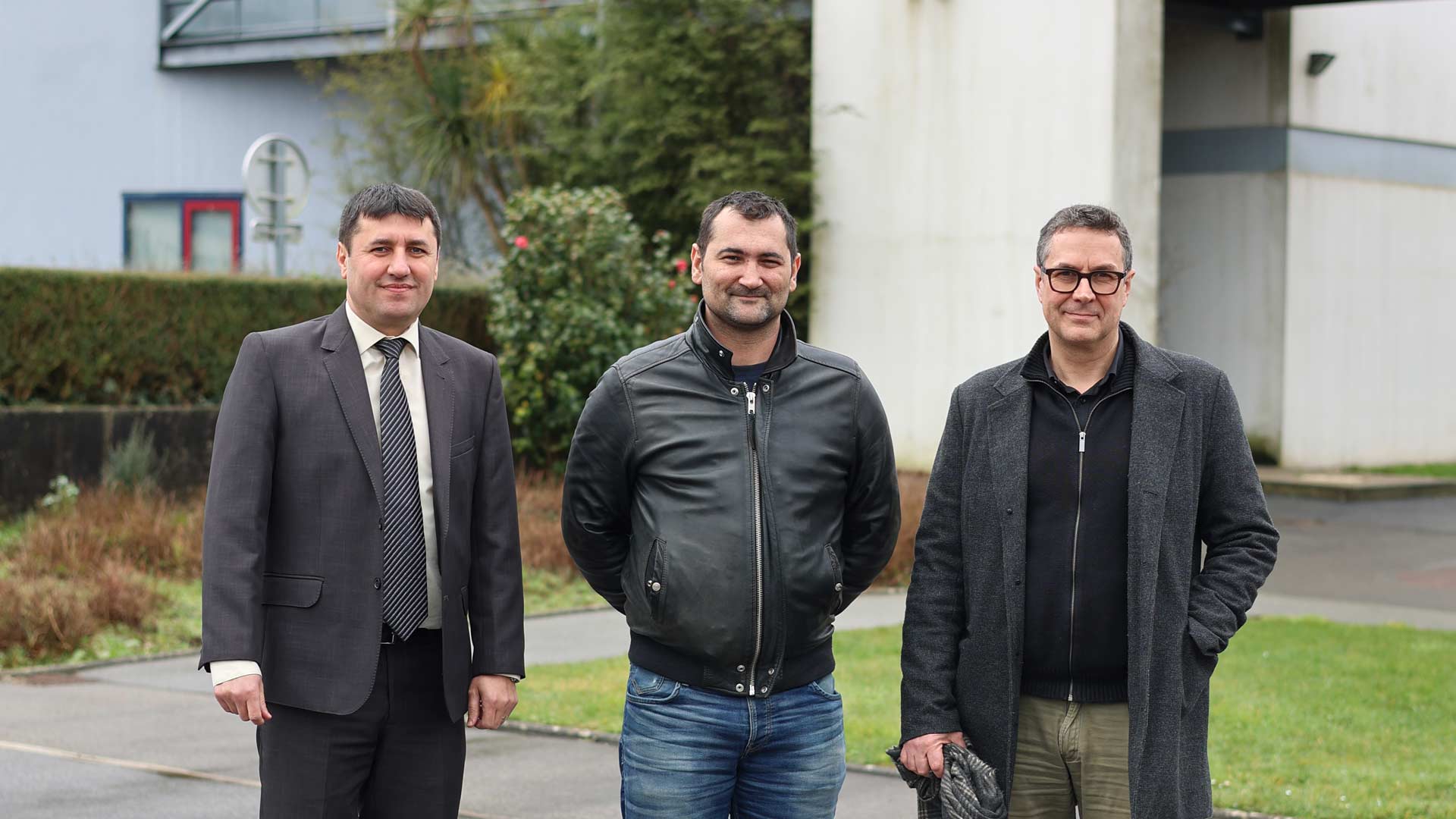
Claudiu Badulescu - IRDL laboratory
Material bonding
Multi-material assemblies are becoming increasingly common in industry. Since 2012, Claudiu Badulescu’s research has focused on characterizing these assemblies using non-destructive testing, as well as modeling their behavior as a function of various parameters: environment, nature of the materials, etc.
New avenues are being explored, such as the use of bio-sourced (naturally derived) adhesives to replace their synthetic equivalents, and the development of self-repairing properties for hard-to-reach bonded structures.
Ciprian Téodorov - Lab-STICC laboratory
Automated software testing
In order to increase the reliability of the software and to make sure that it works properly, formal verification is being developed. It consists of analyzing the accuracy of the operation of a software program by comparing two different representations. For the past 10 years, Ciprian has been working on an alternative approach, G∀min∃, which proposes a modular, compositional and reusable software architecture for the design of a wide variety of tools for exploring the behavior of software programs.
Gilles Le Chenadec - Lab-STICC laboratory
Submarine exploration
Increasing ocean exploration and human activities at sea require the use of increasingly autonomous robots, capable of identifying their location and moving around. Gilles is working on the automatic perception of the environment by developing tools to analyze underwater acoustic waves, combining acoustic modeling, statistical signal and image processing, and machine learning. The researcher is also developing new automatic learning methods (machine and reinforcement learning) for automated and optimized robot navigation according to its state and environment.





















